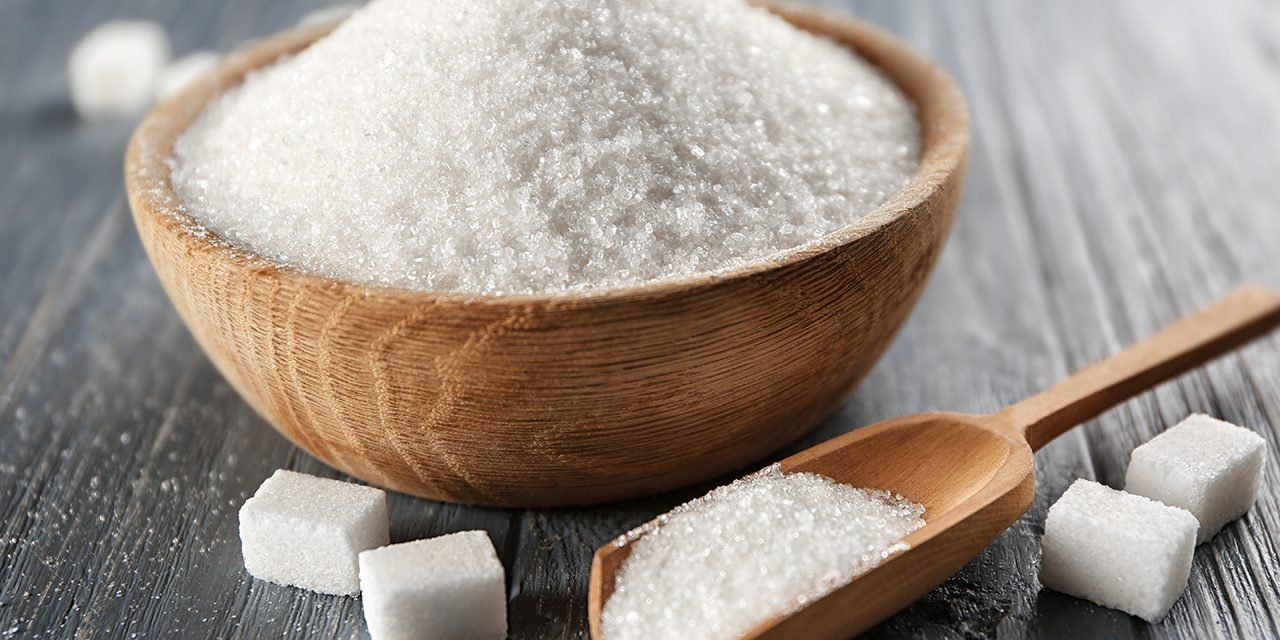What's real and what's hype about Sugar
Eric,

It is said, "Everyone knows" that fat is bad for your health. "Everyone knows" that sugars are safe. It's the "everyone knows" bit that I have a major problem with (It's one of 2 argumentative fallacies: Appeal to authority and Bandwagon). The fact is, dietary fat is far healthier for you than any sugar (except honey, which can be used in very small amounts to sweeten foods). However, consuming too much of anything benificial can be bad for you, so moderation is always advised.
A brief history of sugar
Now, sugar has a long and storied history going back 2500 years to India (where the first actual refined sugar came from)[1]. The unfortunate fact is that sugar isn't very healthy, especially in the large amounts consumed in modern societies. The old saying "A little goes a long way" seems appropriate. However, the contribution of sugar to obesity, heart disease and other issues can't be denied. I say contribution because all of these problems became radically worse after 1890 when seed oils were starting to also get introduced (See my other article "All About Seed Oils"). The fact is, sugar is a very high energy carbohydrate, which pretty much means that any excess in the diet gets automatically stored as body fat. Believe me, this doesn't take a lot.
Now, Big sugar (as a business model) is also involved in the production of near sugar substitutes (based on real sugar). The most common is High Fructose Corn Syrup (which is essentially partially enzymatically digested sugar and sugar fragments).
The above has introduced a problem in our food production supply chain. Sugar based crops are the 3rd largest produced with cereals and grains being 1 and 2 respectively. That makes big sugar big business. Thus, we run into the problem of "sponsored scientific studies, such as those in the late 1960's[2] that tried to quietly point the fault to meat based fats in modern diets.
However, all of that pales in comparison to the introduction of High Fructose based sugar alternatives into the food supply. Most of those Fructose based sweeteners come with their own host of health related issues[3].
One of the most common Fructose based sweeteners is one already mentioned above: High Fructose Corn Syrup. HFCS is actually a grain derived sweetener which is about 4x sweeter than sugar and is used in almost all processed foods. THere are a few differences between regular granulated sugar and HFCS[3]. The first difference is that regular sugar has fructose chemically bound whereas HFCS has both glucose and fructose floating in a water medium. The dangerous factor in HFCS is the fructose. Excessive amounts of this type of sugar accounts for a high percentage of obesity in most western nations. HFCS comes in several concentrations from HFCS-90 to HFCS-42. HFCS-90 is 90% fructose and is not ordinarily used in anything other than bulk processed foods. HFcs-55 (55% Fructose) is used in Corn Syrup for baked goods, frostings etc. That bottle of corn syrup you have in the pantry is the most common product. HFCS-42 (42% fructose) is used in sweet drinks (soda, juices, etc). It is the fructose which is the most dangerous in terms of health. It is processed in the liver and doesn't take a lot to overload that organ, at which point it is directly converted to body fat[3]. This (along with seed oils) is the primary cause of obesity and heart disease in modern societies.
There are artificial sweeteners that relate to information in this blog, but those will be covered in the next article installment. Basically, though, if you want better health overall, stay away from anything containing HFCS. Sugar might not be any healthier, but it is far less dangerous to health than HFCS or even raw fructose. Your best bet, make your own confections, sweet drinks, etc with stuff you know is sweet (that means using honey instead of granulated sugar, butter in place of most "edible oils" (a few exceptions being coconut oil and olive oil). Basically, make it at home instead of buying processed. Only then will you be assured of having a reasonably healthy diet and better health.
Bibliography
1. A history of sugar, the food nobody needs, but everyone craves: https://theconversation.com/a-history-of-sugar-the-food-nobody-needs-but-everyone-craves-49823
2. 50 years ago, the sugar industry quietly paid scientists to point blame at fat: https://www.npr.org/sections/thetwo-way/2016/09/13/493739074/50-years-ago-sugar-industry-quietly-paid-scientists-to-point-blame-at-fat
3. nutrition - high fructose corn syrup vs sugar: https://www.healthline.com/nutrition/high-fructose-corn-syrup-vs-sugar




